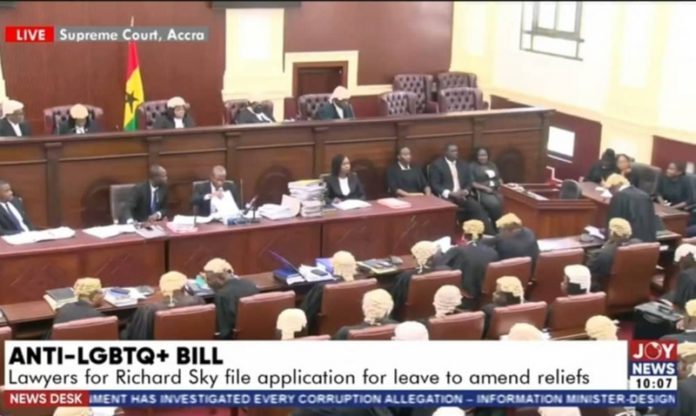A seven-member panel of the Supreme Court, led by Justice Lovelace Avril Johnson, has unanimously dismissed a petition filed by broadcast journalist and lawyer Richard Delay Sky, who challenged the constitutionality of the Human Sexual Rights and Family Values Bill.
Sky had sought a declaration that the bill, which has sparked intense national debate, was null and void.
However, the court rejected his petition, upholding the constitutionality of the legislative process for the proposed anti-LGBTQI legislation.
The bill, which aims to criminalize activities related to lesbian, gay, bisexual, transgender, queer, and intersex (LGBTQI) advocacy, has stirred significant controversy.
If enacted, it would impose penalties on individuals who promote or fund LGBTQI-related activities or provide indirect support.
Proponents of the bill argue that it is necessary to protect Ghanaian cultural and family values, which they claim are being threatened by foreign ideologies.
In contrast, critics, including human rights organizations, view the bill as a violation of fundamental human rights, such as freedom of expression, association, and equality under the law.
The legal challenge also included a separate petition filed by equality and inclusion advocate Amanda Odoi. Both Odoi and Sky argued that Parliament had failed to meet the constitutional quorum requirements outlined in Articles 102 and 104 during the legislative process, rendering the bill’s passage unconstitutional.
In its ruling, the Supreme Court dismissed both petitions on the grounds that the bill had not yet become law.
Justice Lovelace Johnson explained that, until a bill receives presidential assent, it does not constitute an enactment that can be subject to judicial review of its constitutionality.
ALSO READ:


